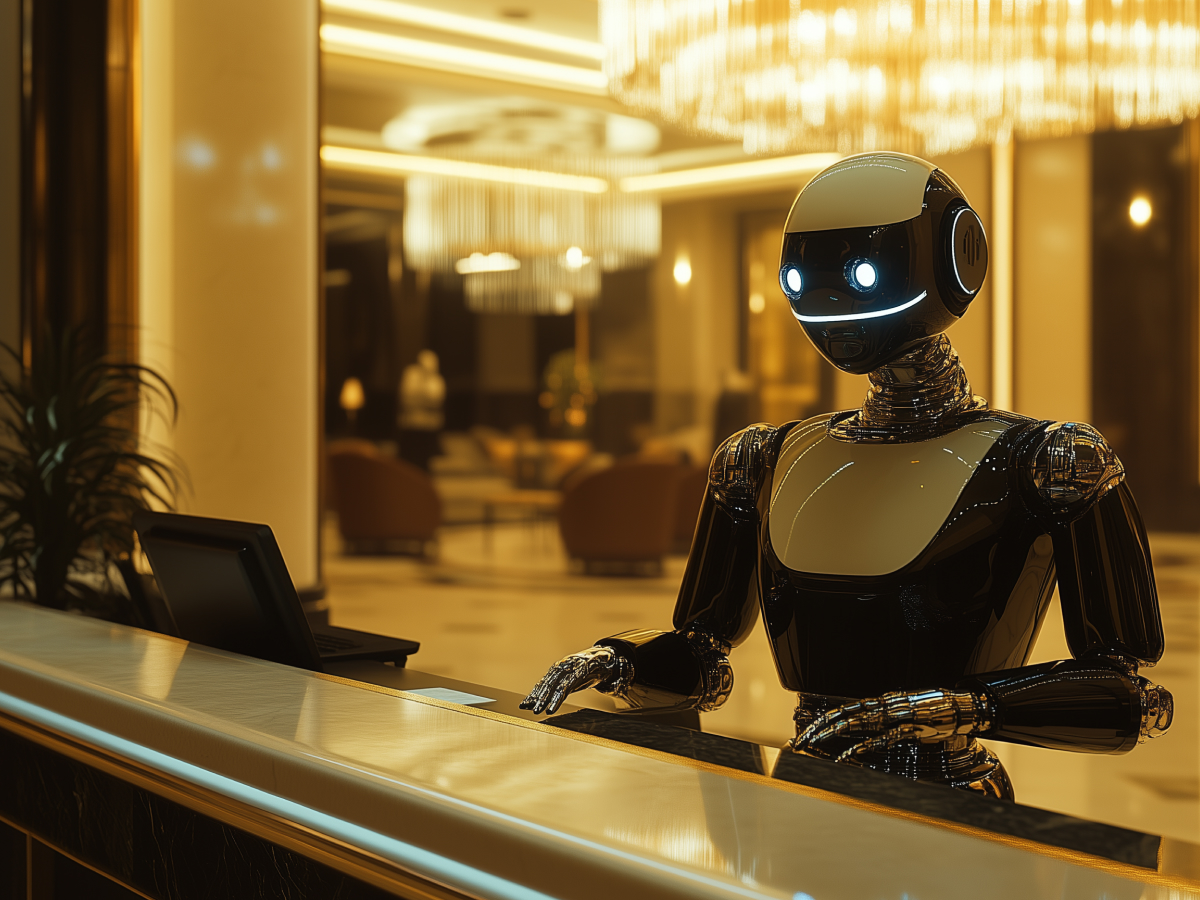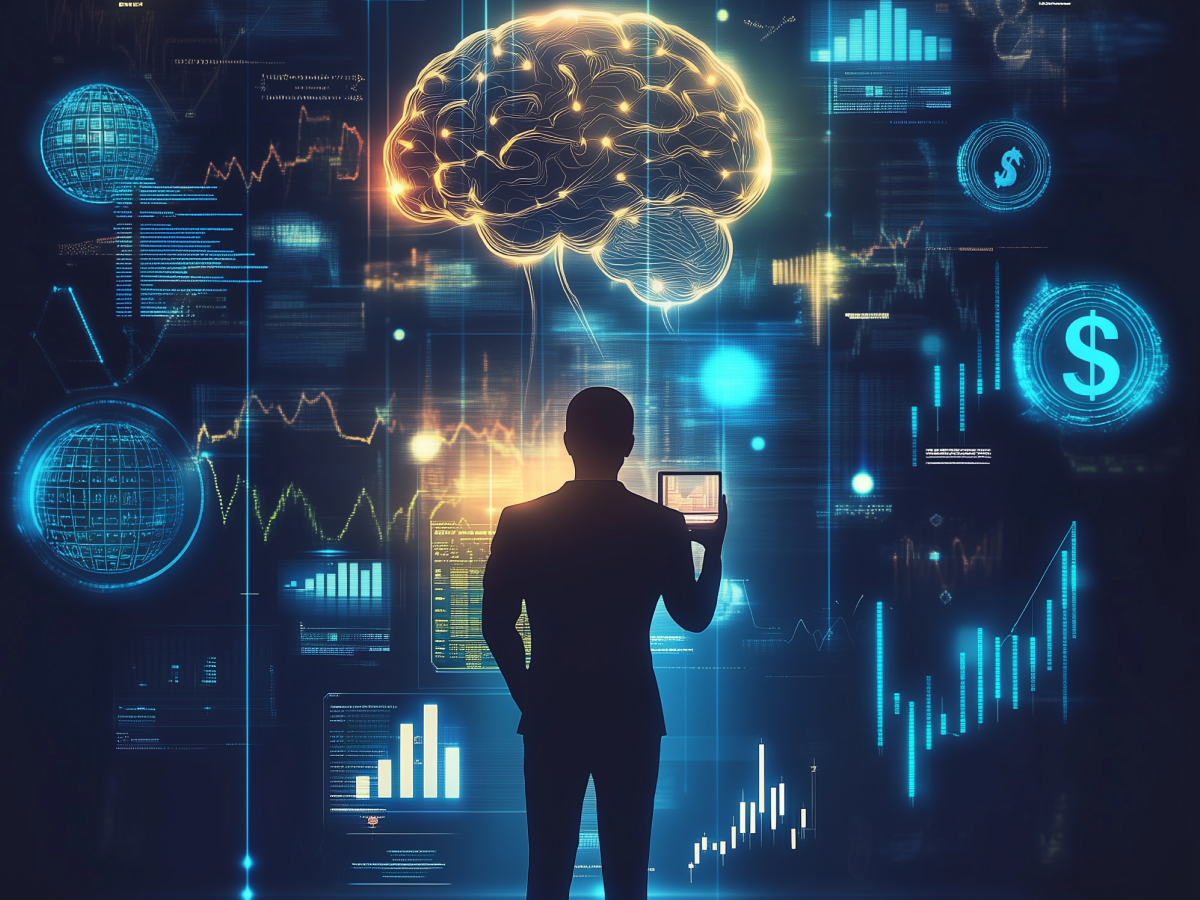AI is revolutionizing guest experience and hotel efficiency
Hotels are no longer just about beds and breakfast—they’re becoming tech-driven ecosystems where AI is reshaping how guests interact with their surroundings. The hospitality industry has always been about service, but now, it’s delivering that service faster, smarter, and with more precision than ever before.
AI is doing two key things here: making operations hyper-efficient and making guest experiences seamless. Hotels are now learning from every guest interaction. AI analyzes check-in patterns, booking preferences, and even feedback from previous stays. This means hotels can anticipate guest needs, not merely respond to them.
The result? A hotel experience that feels effortless. Routine tasks like check-ins, customer inquiries, and room preferences are handled automatically, so guests get the service they want without waiting. And for hotels, this is about maintaining a competitive edge in an industry where expectations are higher than ever. AI chatbots alone have cut front desk call volumes by 35%, freeing up staff for more valuable, personalized interactions.
AI-powered personalization is the future of hospitality
People want experiences tailored to them. Nobody enjoys a one-size-fits-all approach, and AI makes sure that doesn’t happen. Every interaction—whether it’s room selection, dining options, or entertainment—can now be customized.
Hotels are leveraging AI-driven algorithms to track booking history, guest preferences, and even real-time behaviors. Imagine a system that knows a frequent guest prefers a high-floor corner suite, enjoys Italian food, and likes to check in late. AI makes sure everything is set up before they arrive. The room temperature, preferred TV channels, and even restaurant recommendations—it’s all done.
This is a strategy for long-term guest loyalty. When customers feel understood, they return. Hotels using AI to refine guest experiences are seeing repeat bookings climb significantly.
Nick Jones, EVP & CTO of WorldVue, nailed it when he said: “If staff can document details from previous stays and interactions, using personal information responsibly, it enhances the guest experience greatly.”
AI makes hotels more efficient without losing the human touch
There’s a myth that AI removes the human element from service. The truth? It enhances it. AI automates repetitive tasks so staff can focus on real, high-value guest interactions.
Think about customer service in other industries—when you call tech support, you expect a frustrating experience. But imagine calling and getting someone who already knows your issue before you even speak. That’s what AI can do for hotels.
Hotels using AI-driven systems can document guest preferences, reducing redundant conversations and making check-ins and service requests frictionless. AI chatbots handle FAQs, reservation changes, and basic troubleshooting, letting human staff focus on what matters—personal connections.
“Guests don’t want to waste time on logistics and instead want experiences. AI is taking care of the logistics so humans can take care of the moments that matter.”
Smart Wi-Fi, interactive tech, and contactless services
The modern traveler expects seamless, instant access to everything. Whether it’s streaming content, controlling room settings with a phone, or checking in without a physical key, hotels need to deliver digital convenience.
Peter Ollerton, Senior Director of Sales and Channel Partners at WorldVue, put it simply: “From smart Wi-Fi solutions to interactive in-room TV platforms and contactless options, technology innovations significantly enhance the guest experience while supporting sustainability initiatives and boosting operational efficiency.”
This is where integrated systems shine. Smart Wi-Fi networks ensure reliable, high-speed connections across the entire property, while interactive in-room platforms allow guests to adjust lighting, request services, and even browse local attractions—all from their smartphones or TV.
And then there’s contactless technology—mobile check-ins, digital room keys, and voice-activated controls. Beyond just convenience, this tech is cutting down on unnecessary physical touchpoints, something that became essential during the pandemic and is now an expectation. Focus on giving guests control while making operations smoother.
AI is pushing hospitality toward a sustainable and secure future
On the sustainability side, smart energy management systems adjust lighting, heating, and cooling based on occupancy, reducing waste and lowering costs. Digital guest services eliminate unnecessary printing and paperwork, further minimizing environmental impact.
On the security side, AI-powered systems improve safety through facial recognition check-ins, smart surveillance, and advanced cybersecurity measures that protect guest data. Security isn’t locking doors anymore, but rather protecting information, preventing fraud, and ensuring seamless, safe transactions.
Key executive takeaways
- Personalized guest experience: AI-driven systems enable hotels to tailor services by analyzing guest data, leading to higher satisfaction and loyalty. Decision-makers should invest in AI for bespoke service delivery while ensuring robust data privacy practices.
- Operational efficiency through automation: Automating routine tasks with AI, such as chatbots handling inquiries, allows staff to focus on high-value interactions. Leaders should prioritize these systems to streamline operations and reduce costs.
- Integrated technology solutions: Unified platforms that combine smart Wi-Fi, in-room controls, and contactless services create a seamless guest experience. Executives should consider integrated tech to simplify operations and meet evolving consumer expectations.
- Sustainability and security enhancements: AI not only improves service but also optimizes energy use and strengthens cybersecurity measures. Hotels should leverage these technologies to meet sustainability goals and protect guest information effectively.





